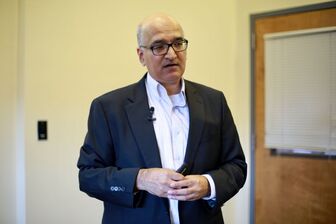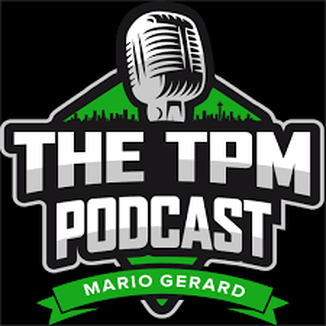 Mario Gerard, Host of TPM Podcast, TPM Blogs and Principal TPM Mario Gerard, Host of TPM Podcast, TPM Blogs and Principal TPM Mario Gerard is a great resource that I highly recommend you turn to if you want a better understanding of different technical jobs that may interest you and for which you may qualify. Even if you are happy with your current technical job, it does not hurt to know what potential path you have available in your career. Mario uses his vast experience as a technical professional to teach others on different technical opportunities available to pursue in his or her career. And what it takes to get those jobs is what it takes to succeed once you start the jobs the first 90 days, the first year, and how to become a competent technical professional and take on more challenges. Mario is an excellent communicator. He simplifies things so that anyone can understand. He is an outstanding teacher. He asks questions that we want to ask of his guests. I have recommended his blog posts and podcast to others. They have found it very helpful. To give you an example, you can check out his podcast with his guest, Visva Mohanakrishnan, Senior Technical Progam Manager (TPM) at Amazon, in two parts. In the two podcast episodes with her, I learned about the following items:
In his podcast, Mario not only asks questions to get the perspective of his excellent guests, but he also provides his perspective from his experience. You will get a solid understanding of what is required to succeed in different technical jobs. I want to thank Mario Gerard for taking the time out of his schedule to answer my questions. Five Questions Q: Can you explain the role of a technical program manager (TPM) as it exists at many companies? Do you see this role evolving in the future from how it is today? In short, a technical program manager (TPM) enables tech organizations to achieve their goals faster. This is done by the TPM being the single point person to be responsible for critical programs. The reason this role has become critical in recent times is that every program that is critical requires the TPM to effectively communicate technical issues and problems and work with several dependencies that are owned by other teams. The role is already significantly evolving, we can see this because we now have TPMs who specialize in certain areas like front end systems, backend systems, operational excellence, cloud technologies, payments, fraud, etc. Q: TPM is a hard job, so what kind of people you can turn to from whom you can learn and get advice? Who did you learn from when you were starting out? And now that you are principal TPM, whom do you go to when you want to bounce off ideas? Is there a support group for TPMs to share ideas and discuss best practices? Have you seen this at other places where you have worked? Generally, as a TPM, you can get advice and pointers from more experienced TPMs within your own organization. Also, you can always get help from SDMs (Software Development Managers) as well. I was lucky to have a very good peer group of TPMs both within the organizations I have worked at and also had a good circle of TPMs outside my organization who I could use to bounce ideas with. As a Principal TPM, I use my management chain to get help when required and use my peer network of TPMs within the organization heavily. There are people who are experts at solving certain types of problems; knowing who they are and what each person's expertise is generally a great start. I also help TPMs at various organizations with advice when they reach out to me. Q: Can the technical program manager's role be divided between the software development manager and the product manager? Or is it that there are too many products and software development projects that have to be managed in a coordinated manner to ship a product that there is a real need for a TPM? Yes, the TPM role could be divided between the SDM and a PM if they have the right set of skills. However, if both those roles have their hands full and need someone who could help their team scale, a TPM would be a great addition. The same goes for teams that do not have a Product Manager. There are several instances where a TPM also takes on the role of a PM's role when the team does not have a PM. This is particularly true when the TPM is very technical, and the Product that is being developed is also technical in nature or when the TPM has significant Product based knowledge. In general, the need for a TPM is generally higher if the organization is structured in such a way that there are too many dependencies outside the primary team's control. Q: What does a typical day (if there is one) look like for a technical program manager? A typical day for an embedded TPM would involve the following activities:
Q: Have you worked at a company where you had both a technical program manager and a business program manager? Is there a handoff that takes place from a TPM to a BPM as you the Product is close to being shipped? Do you even need both a TPM and a BPM? There have been instances where we have had a business PM whose primary responsibility is to interact with customers. This is generally true in an organization where the Product is a B2B product. In this type of organization, the BPM is generally responsible for customer interactions, dealing with legal, creating a go-to-market plan, working with press relations, etc. While the TPM is more internal-facing and is primarily responsible for building and shipping the product. Three Books Recommended by Mario Gerard Measure What Matters: How Google, Bono and the Gates Foundation Rock the World with OKSs by John Doerr Solution Architect’s Handbook: Kick-start your solutions architect career by learning architecture design principles and strategies by Saurabh Shrivastava, Neelanjali Srivastava, Kamal Arora Art of Scalability. The Scalable Web Architecture, Processes, and Organizations for the Modern Enterprise by Martin Abbott and Martin Fisher Resources Mario Gerard Website TPM Podcast Mario’s Contact Information LinkedIn: https://www.linkedin.com/in/mariogerard/ Email: [email protected] Twitter: mariorgerard #####  I am an author, speaker, career success coach. I guide people thrive on high stakes stage whether it's for a job interview, career advancement, a sales presentation or a high-stakes speech. I am the author of a practical book on speaking titled Winning Speech Moments: How to Achieve Your Objective with Anyone, Anytime, Anywhere. The main idea of the book is that if you want people to remember your speech and take action, you must create a winning speech moment. Please download the free speech checklist I created that I always use to create a winning speech for any occasion. Please contact me if you would like to thrive on high stakes stage. You can reach me at [email protected] or 732-847-9877. Note, if you are an author, executive, podcaster or interesting and would like me to interview with five questions and then publish it as a blog post and promote it on LinkedIn, Twitter and Facebook and become famous, please contact me.
1 Comment
|
AuthorJay Oza Archives
July 2024
Categories
All
|
© 2017 Winning Speech Moments


 RSS Feed
RSS Feed